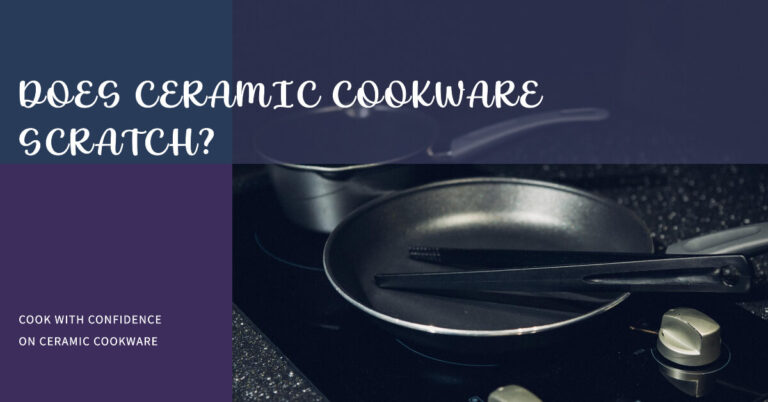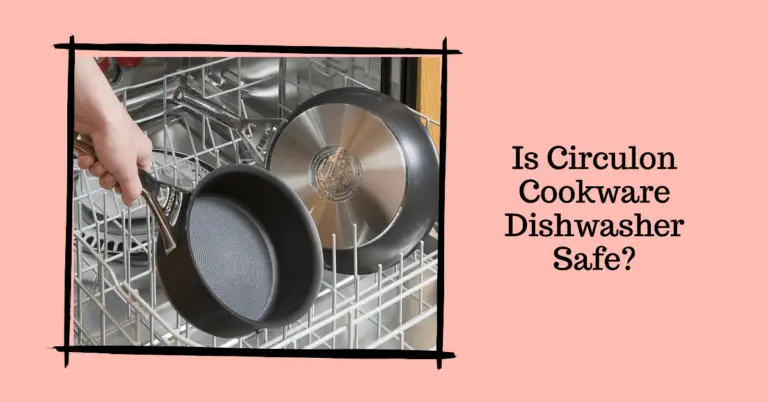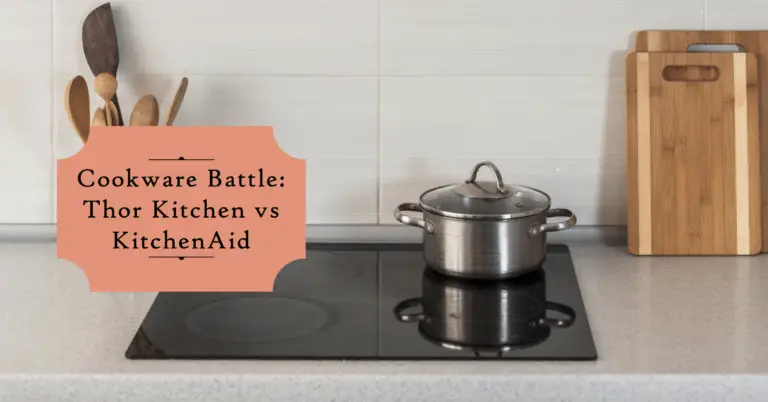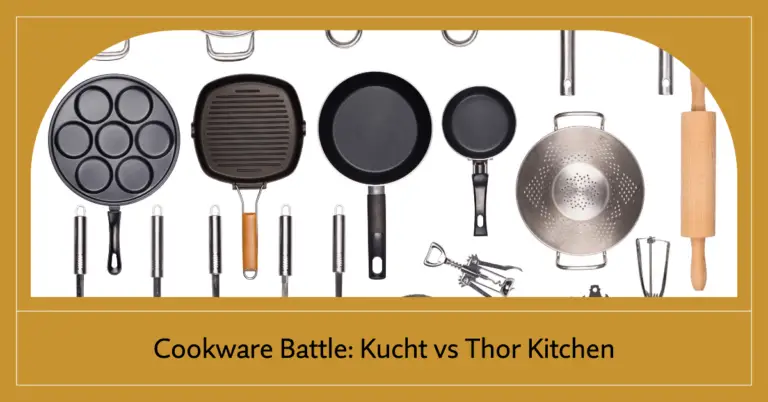Is Granite Cookware Safe? The Pros and Cons.
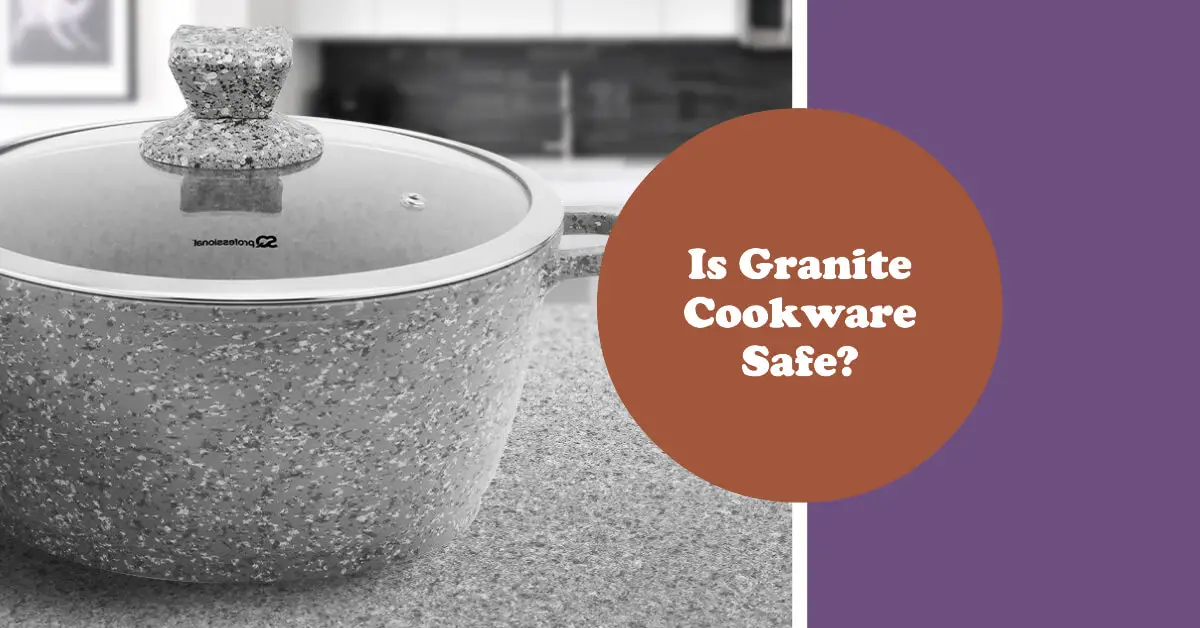
Cooking delicious meals for yourself and your family is one of life’s great joys. But it can quickly become a source of stress and worry if you don’t have cookware you can trust. These days, many home cooks are rightfully concerned about the safety of popular nonstick pans coated in Teflon and other synthetic chemicals. This has led to interest in a promising natural alternative: granite cookware.
But is granite cookware truly safe for everyday cooking? Can these stylish granite pots and pans made from natural stone hold up to the rigors of a busy kitchen? Or do they carry their own risks?
In this detailed guide, we’ll cover everything you need to know to answer the key question: is granite cookware safe? You’ll learn how granite pans are made, if they can leach dangerous chemicals, whether granite provides real nonstick power, plus granite’s pros and cons compared to alternatives. Equipped with all the facts, you can decide if granite represents the future of safe, natural cooking.
Overview of Granite Cookware
Granite cookware has burst onto the kitchen scene in recent years as a durable and naturally nonstick alternative to traditional pots and pans. These innovative new cookware sets are crafted from natural granite stone instead of materials like aluminum or stainless steel.
Granite pans get their rugged good looks and Gray Speckled cooking surface from the fusion of minerals like quartz, feldspar, and mica that make up natural granite. Molten granite is molded into pans and then shaped and polished by hand using artisanal techniques passed down for generations.
The resulting granite cookware evenly conducts heat across its surface while remaining remarkably resilient to high temperatures and rapid temperature changes. In fact, granite is nearly indestructible, resisting chips, cracks, and scratches better than most other cooking surfaces.
Meanwhile, the porous, textured granite surface gives it natural nonstick properties without the need for synthetic coatings like PTFE or PFOA. When properly seasoned, granite provides an impressively slick cooking surface akin to cast iron or carbon steel, but with added convenience. Most granite cookware is also oven and dishwasher safe.
Brands producing granite cookware sets include Granitestone, RockLite, Nutrichef, and Stone&Beam. Pans come in a variety of shapes and sizes ranging from frying pans to stock pots, letting you assemble a fully outfitted granite cookware set.
But the biggest appeal of these granite pots and pans is their safety. Avoiding exposure to worrisome chemicals like PFOA and PTFE found in many nonstick pans is the top reason home cooks turn to granite.
Is Granite Cookware Toxic?
Given the concern over chemical nonstick coatings possibly leaching into food during cooking, the first question many have is: is granite cookware toxic?
The short answer is no. When intact, granite cookware is considered completely safe and non-toxic for cooking.
Granite’s incredibly inert properties are what give it this reassurance of safety. The material will not react with food or release any chemicals or toxins into meals prepared with granite pans, even acidic foods that can react with metals like aluminum.
The only health concern ever raised about granite cookware is the minute emission of radon gas from natural granite stone. However, the levels detected have been far below the limit deemed dangerous by the EPA. In fact, you’d get a higher dose of background radiation from watching TV than cooking with granite!
So while no cookware is 100% risk-free, granite pots and pans made from this remarkably stable natural material represent a far safer choice over chemical nonstick options. Just be sure to buy granite cookware from a reputable brand and inspect carefully for damage before each use.
Does Granite Provide Real Nonstick Power?
The other major claim made about granite cookware is that it provides completely natural nonstick performance. But does granite really work as a durable nonstick surface you can rely on every day?
The answer is yes – with some caveats. Thanks to its rugged, dimpled texture, granite cookware can absolutely become impressively nonstick. Food will release easily with little added oil or butter needed during cooking.
However, don’t expect your new granite pan to be effortlessly nonstick right out of the box. Some pre-seasoning is required first.
Here are tips for getting the best nonstick performance from granite cookware:
- Season before first use – Rub a thin layer of oil into the granite surface and bake upside-down for 1 hour at 300°F. Repeat 2-3 times.
- Preheat properly – Always preheat granite cookware over medium-low heat before adding oil or food. Avoid drastic temperature changes.
- Use enough oil/fat – Adding a bit of butter, oil, or other fat will improve food release, especially when granite is brand new.
- Clean gently – Hand wash granite gently after each use. Avoid abrasive pads or cleaners that can strip away the seasoning.
Follow this care routine and your granite cookware will provide natural, even heating with slick nonstick release rivaling well-seasoned cast iron. The more you use it, the better it gets!
Does Granite Cookware Leach Chemicals?
Another concern home cooks have about traditional nonstick pots and pans is the potential for harmful chemicals to leach out during cooking. Can you rest assured granite cookware remains inert and won’t contaminate food?
You can absolutely trust granite not to leach any concerning compounds or toxins before, during, or after cooking. Remember, it’s simply made from solid natural stone, not any synthetic nonstick chemicals that can break down and migrate into food.
In fact, one of granite’s biggest safety advantages over materials like aluminum and copper is its unmatched stability in the presence of acidic ingredients. Things like tomatoes, citrus, and vinegar can react with metal pans and leach metallic compounds into food. This won’t happen with granite’s impervious surface.
So enjoy cooking family favorites like spaghetti sauce without worry. Granite provides safe, unreactive, chemical-free cooking performance. Just keep the granite intact by avoiding sudden temperature shocks which can cause cracking.
How Durable is Granite Cookware?
Considering it’s literally hewn from solid rock, you might expect granite cookware to be indestructible in the kitchen. Is granite as tough as it seems?
The simple answer is yes – granite pans and pots are extremely durable. Granite achieves near-perfect scores on hardness tests, outperforming stainless steel. When cared for properly, your granite cookware should provide a lifetime of service.
Here are some examples of granite’s durability:
- Resists Cracking – The thermal shock-resistance allows rapid heating or cooling without risk of cracks or fractures.
- Won’t Warp – Granite can withstand up to 800°F oven temperatures without warping like aluminum pans.
- Stays Flat – The thick, sturdy base maintains its flat shape even with heavy use over many years.
- Hands Metal Utensils – Granite laughs at scratches from metal spoons and whisks that would destroy lesser pans.
- No Special Maintenance – Unlike some natural surfaces like soapstone, granite doesn’t require yearly re-oiling to maintain its integrity.
So while no pan lasts literally forever, granite offers one of the most indestructible cooking surfaces available today. The ultra-dense stone prevents all types of wear and abuse that would quickly ruin other pots and pans.
Is Granite Oven and Dishwasher Safe?
Another perk offered by quality granite cookware is convenience. Granite pans can be safely used in the oven for roasting, baking, and broiling up to 450°F. The durable material won’t crack or leach chemicals when exposed to heat.
Granite pots and pans are also considered dishwasher safe, which is unusual for a natural nonstick surface. You’ll want to use a gentle cycle and non-abrasive detergent to avoid stripping away the protective seasoning over time.
Hand washing is still recommended for longest lifespan, especially for heavily used pans. But the dishwasher compatibility provides flexibility for busy home cooks.
Thanks to these convenient features, you can use granite cookware for all kinds of recipes – from stovetop sautéing to oven braising and baking. Granite delivers outstanding versatility compared to materials like cast iron that can’t withstand moisture or soap.
Weighing the Pros and Cons of Granite Cookware
Granite clearly provides excellent nonstick ability coupled with natural safety. But how does it compare to alternatives like stainless steel or hard anodized aluminum when all factors are considered?
Here is a quick pros vs cons rundown when evaluating granite cookware:
Pros
- Naturally nonstick when seasoned
- Won’t react with acidic foods
- Ultra durable and heat resistant
- Oven and dishwasher safe
- Stylish looks and artisanal craftsmanship
- Eco-friendly and sustainable
Cons
- Heavy – weighs more than other materials
- Requires seasoning and gentler care
- Prone to cracking if overheated
- Slow heat conductor compared to metal
- Expensive upfront cost
As with any cookware material, there are some downsides to balance out granite’s many strengths. The heaviness and slower heating may rule out granite for some users.
However, granite’s unmatched durability and safe, chemical-free cooking surface makes it a top choice for cooks wanting natural nonstick ability without PTFE/PFOA concerns.
Should You Make the Switch to Granite Cookware?
So when all the facts are in, should you ditch your current pots and pans and make granite your new go-to cookware?
Here is a quick quiz to see if granite cookware seems like the right fit for your cooking needs:
Do you want…
- Completely natural nonstick performance?
- An ultra-durable cookware set that will last a lifetime?
- Oven/dishwasher safe convenience for all recipes?
- A non-reactive surface for acidic foods like tomato sauce?
- An eco-friendly alternative to synthetic nonstick coatings?
If you answered YES: Granite cookware offers clear advantages and will likely impress you with its cooking prowess. The safest route is to start with just one pan to test drive granite before fully replacing your cookware.
If you answered NO: Your needs may be better met by traditional materials like stainless steel or hard anodized aluminum. Consider a granite skillet solely for egg dishes where nonstick really matters.
Whichever camp you fall into, understanding the pros and cons enables choosing the right cookware for your kitchen. Granite offers natural nonstick benefits unmatched by other materials – but with some tradeoffs to consider.
At the end of the day, granite remains far safer and more eco-friendly than artificial nonstick coatings. Its durable craftsmanship also makes it a smart long-term investment for your health and the environment.
So take your time, cook safely, and bon appétit!
Conclusion
Finding cookware that combines nonstick convenience, durability, and safety can feel like an impossible task. However, granite cookware provides a compelling solution by merging natural materials with modern designs.
While granite requires gentler care than stainless steel, its impressive longevity and toxin-free cooking surface offer definitive advantages. Understanding both the benefits and drawbacks allows choosing whether granite suits your cooking style.
Thanks to enduring thermal properties that have served us for eons, natural granite stone remains a timeless (and timely) alternative for home cooks. Perhaps the future of safe, eco-friendly nonstick cookware has been under our feet all along in the form of this venerable material.

